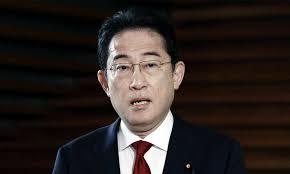Prime Minister Fumio Kishida has announced he will step down next month and will not run for a second term as leader of the long-ruling Liberal Democratic Party, following a series of political scandals that fueled calls for him to resign.
In a press conference on Wednesday, Kishida said it is necessary to present the LDP as a “changed party.”could in theory have governed until 2025, and there had been speculation he might call a snap election to shore up his position.
But NHK reported that growing voices inside the LDP believed it would fare badly in elections under Kishida. In April, the party lost three by-elections.
Kishida, who last year escaped a pipe-bomb attack unscathed, has also faced severe criticism over a major kickbacks scandal linked to fundraising parties.
He quit because he feared he could lose the leadership battle and might have been advised to do so by party elders, said Koichi Nakano, a political science professor at Sophia University.
“He has failed to close ranks within the LDP,” Nakano told AFP.
But he added: “For an LDP leader, staying in power for three years is longer than the average.”
First woman PM?
Several figures have been mooted as possible successors including digital minister Taro Kono and economic security minister Sanae Takaichi, who would be Japan’s first female premier.
Others include Shigeru Ishiba, former party number two, and Shinjiro Koizumi, former environment minister and son of ex-premier Junichiro Koizumi.
Because of the funding scandal, Kishida pushed powerful factions within the LDP to disband, which will change the nature of the coming leadership battle, analysts said.
“As the general election is close, LDP lawmakers and party members are more likely to choose the (party) president who is popular with the people,” said Naofumi Fujimura, professor of political science at Kobe University.
But voter Kentaro Oba, 40, said that none of the likely candidates struck a chord with him.
“I personally think the negative sides of the LDP have been surfacing lately, so a change in power might be a good idea,” the company worker told AFP.
“I personally would like to see someone younger take charge,” said Akito Kashino, 26.
“We have only seen very old politicians lead our country so far, so someone more youthful and efficient would be good.”

